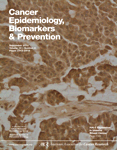Celiac.com 02/18/2004 - A study conducted by researchers in the UK has found that 1% of all seven year old children in the UK have celiac disease, and most cases of celiac disease continue to remain undiagnosed. The researchers tested 5,470 "normal" children using a two stage screening that included an initial radioimmunoassay for antibodies to tissue transglutaminase (endomysial antigen), and a further testing of positive samples for IgA-EMA by indirect immunofluorescence. Children with tTG antibodies under the 97.5th percentile were defined as antibody negative. Out of those tested 54 were positive for IgA-EMA. Additionally: "IgA-EMA positive children were shorter and weighed less than those who tested negative for tTG antibody."
Celiac.com Sponsor (A12):
The Researchers Comment:
Conclusion:
"Occult coeliac disease seems to start in childhood, even in those who are subsequently diagnosed as adults. The search for the trigger resulting in the breakdown of immune tolerance to gluten therefore needs to focus on infancy and intrauterine life."







Recommended Comments
There are no comments to display.